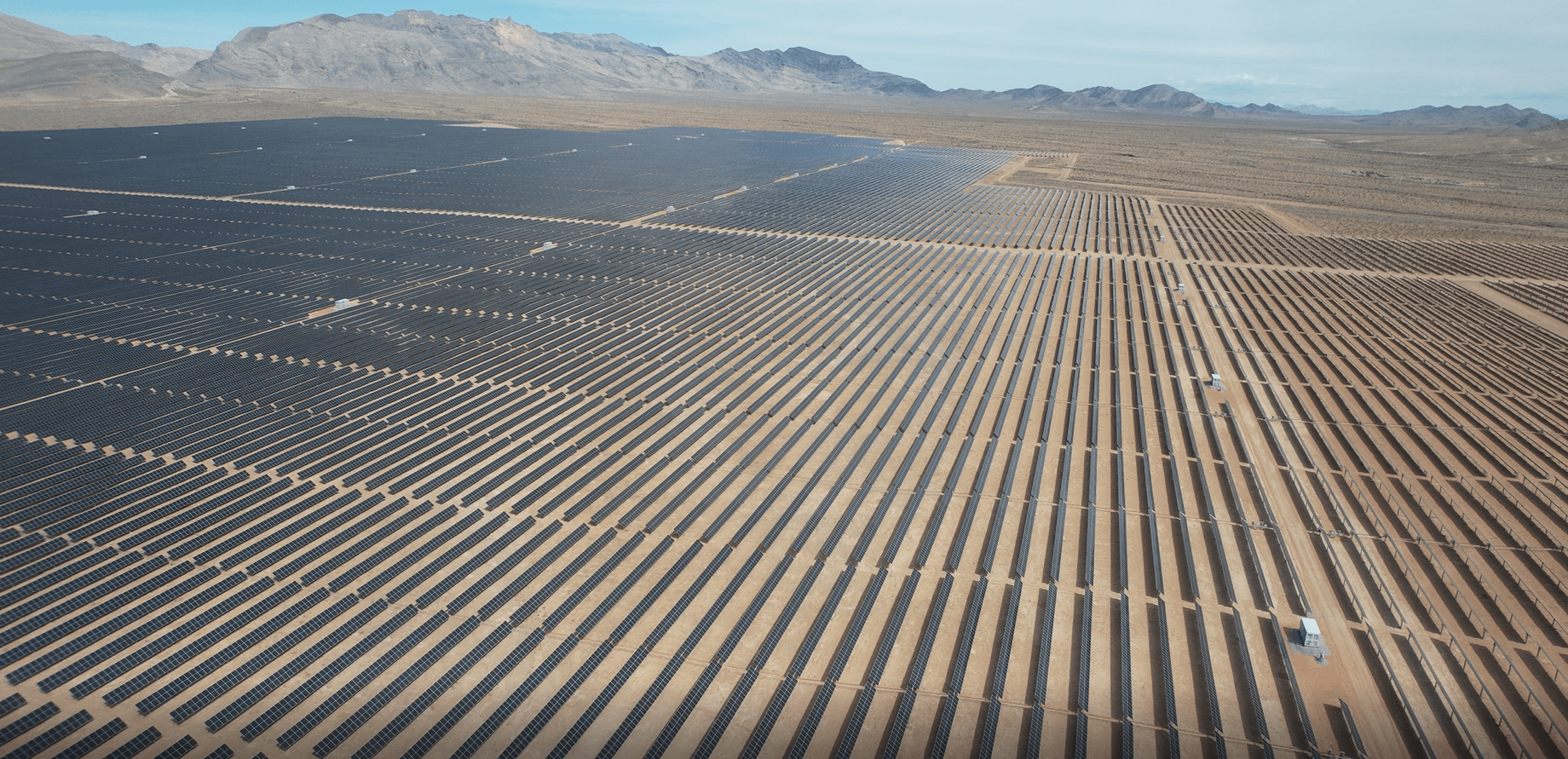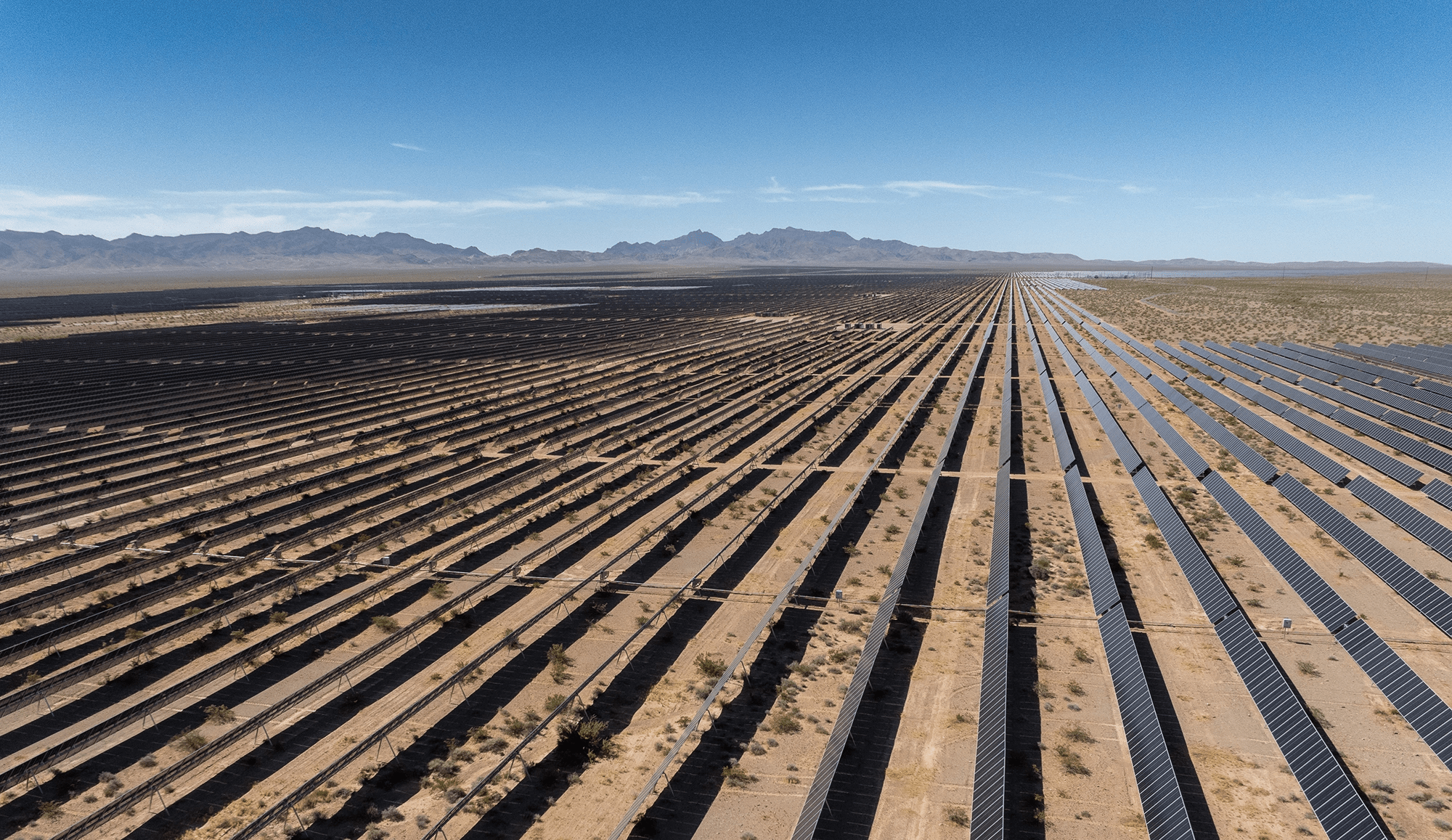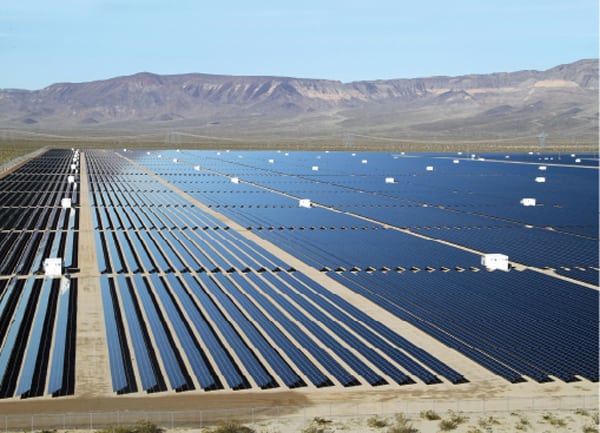State Overview
Nevada
National Solar Capacity Ranking: 6th
Data Current Through: Q4 2024
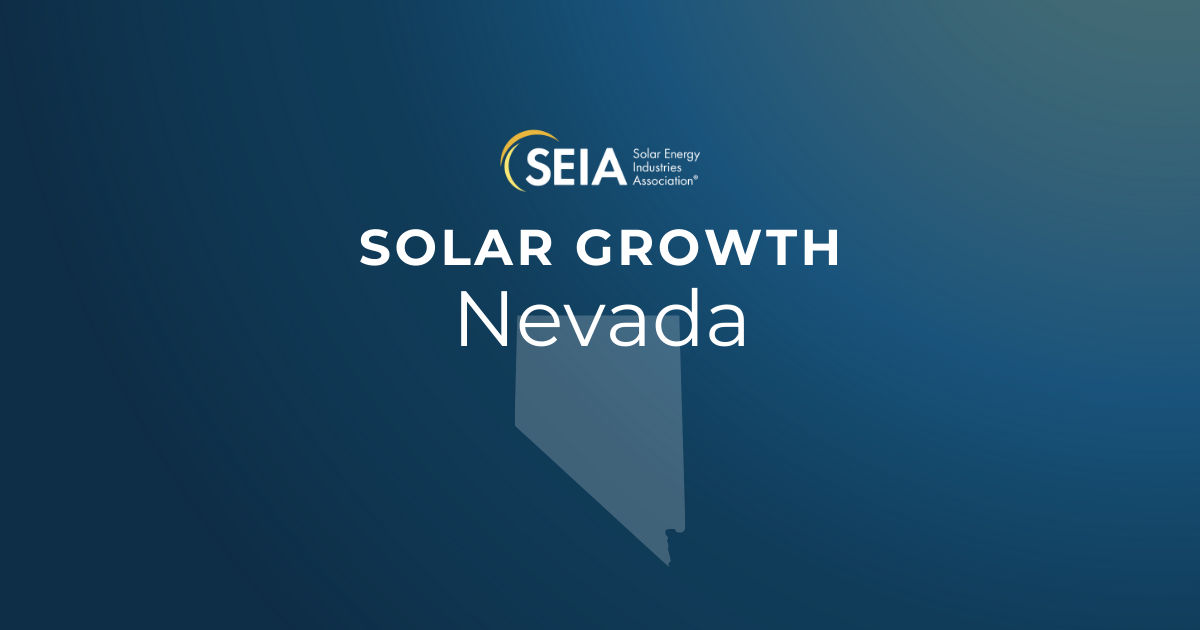
Nevada State Solar Overview
With numerous utility-scale, residential and commercial solar projects, Nevada has long been a top state for solar. While the Public Utility Commission of Nevada changed the net metering policy offered to solar customers in Nevada, which slowed down solar deployment, in 2017 the Nevada legislature voted to resurrect this important state policy. SEIA is working in Nevada to establish policies to promote new solar growth for all sectors of the industry and create a sustainable market with transparent policies.
Nevada Policy Priorities
- SEIA is actively engaged in proceedings at the Public Utilities Commission to advance opportunities across solar and storage market sectors. Recently, SEIA advocated for policies to encourage distributed energy resources, develop a new Virtual Power Plant Program, and ensure competitive procurement processes for community and utility-scale solar.
- Interconnection, siting, and land use continue to be a focus for SEIA to ensure the continued successful development of new resources.
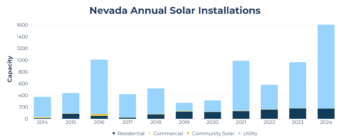
Data References:
SEIA/Wood Mackenzie Power & Renewables, Solar Market Insight 2024 Year-in-Review
IREC, National Solar Jobs Census
Energy Information Administration, Electric Power Monthly
SEIA, National Solar Database
Just The Facts
-
Solar Installed (MW):
7,784
-
National Ranking:
6th (11th in 2024)
-
Enough Solar Installed to Power:
1,338,238 homes
-
Percentage of State's Electricity from Solar:
30.53%
-
Solar Jobs:
8,592
-
Solar Companies in State:
107 (19 Manufacturers, 42 Installers/Developers, 46 Others)
-
Total Solar Investment in State:
$13.5 billion
-
Prices have fallen:
42% over the last 10 years
-
Growth Projection and Ranking:
10,659 MW over the next 5 years (ranks 7th)
-
Number of Installations:
138,766

Nevada State Solar Policy Resources
-
DSIRE incentives database – Nevada – Search a public clearinghouse for specific solar energy incentives in Nevada and across the United States
-
Nevada Legislature – Track pending legislation affecting solar energy, locate and contact individual legislators, and stay up to date on current legislative issues in Nevada
-
Nevada Public Utilities Commission – Learn about the governing body that regulates the electricity rates and services of Nevada public utilities
-
Nevada Solar Panels Overview – Learn about the history of solar policy in Nevada, along with up-to-date pricing information on EnergySage
-
Nevada State Energy Office – Find a wide variety of information on state government energy programs, policy, projects, energy-saving strategies and energy-related statistics
-
Solar Panel Cost in Nevada – Learn about the history of solar policy in Nevada, along with up-to-date pricing information on EnergySage
-
Solar Rebates & Incentives in Nevada – Check out EnergySage’s list of key solar incentives in Nevada to see what programs you can benefit from
-
U.S. Energy Information Administration – Nevada State Profile – Explore official energy statistics, including data on electricity supply and demand, from the U.S. government
Nevada law contains detailed consumer protection provisions, including regulations on door-to-door sales, advertising requirements, prohibition of deceptive practices, and a construction recovery fund.
Specific to the solar industry, N.R.S. 598.9801-9822 details contract requirements and disclosures for DG and residential systems. Passed in 2024, SB 293, enhanced provisions designed to prevent deceptive trade practices. SB 293 requires solar salespeople to be employees of a solar installation company, and that company must hold a Nevada contractor’s license. SB 293 also adds required disclosures to the solar contract cover page and ensures customers receive contracts in the language used in the sale and advertising.
Nevada Energy Storage Policy and Market Overview
Energy storage is a key component of Nevada’s energy objectives. The state is a leader in storage deployments and the annual growth of the market is unprecedented. Utility, legislative, and regulatory actors are working to create a booming market with ample funding and incentive opportunities, a thorough interconnection process, and consumer protections.
Legislators in Nevada are key players in advancing storage growth. In 2017, the state legislature passed an energy storage procurement target, set at 1,000 MW by 2030. In the same year, the state also mandated energy storage reporting in IRP filings, further stimulating the market. And the establishment of the Nevada Renewable Energy Bill of Rights codified residential and commercial access to interconnect batteries and receive fair compensation.
Open pathways for residential and business customers to enter the storage market have inspired funding opportunities to offset costs. Property tax abatement, rebates, and state funding are incentivizing deployment with a pipeline of more than 90% paired solar and storage systems.
Nevada Energy Storage Policy Resources
- Renewable Energy Property Tax Abatement – Property tax abatement for renewable energy, energy storage, and other clean energy systems.
- Renewable Energy Bill of Rights – Codified rights for renewable energy customers, and protection for storage and alternative energy.
- Nevada Clean Energy Fund – State established Green Bank offering loan financing options for solar and storage, educational & consumer protection information, and more.
- Nevada Governor’s Office of Energy – State grant funding opportunities for grid resilience, smart grids, and more.
- DSIRE Nevada Energy Storage Policy Database – Clearinghouse for financial incentives, regulations, and rebates for energy storage and lithium-ion technologies in Nevada and across the United States.
- Pacific Northwest National Laboratories Energy Storage Policy Database – Map of Procurement, Regulatory, Demonstration, Incentive, and Interconnection policies in Nevada and across the United States.
- Nevada Storage Incentives – EnergySage’s list of key storage incentives and rebates and see what programs you can benefit from.
- Energy Storage Cost in Nevada – Up-to-date storage and solar-plus-storage pricing and find installers in Nevada on EnergySage.
- State of Nevada Public Utilities Commission – Governing body that regulates the electricity rates and services of Nevada public utilities, search for regulatory dockets, programs, and initiatives.
- Nevada Legislature – Pending, passed, and historical legislation affecting energy storage and battery systems, locate and contact individual legislators, and stay up to date on current legislative issues in Nevada.

